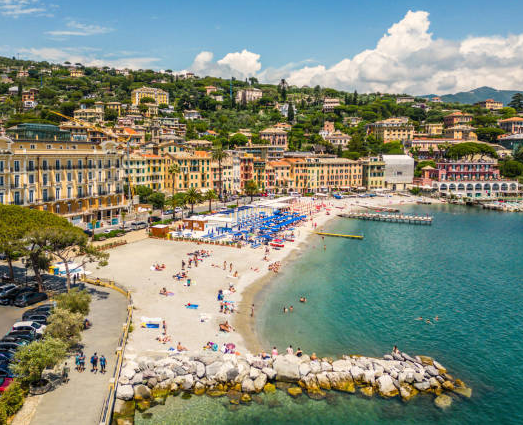
Most Saved Airbnb Listings in the “Stunning Views” Category
October 9, 2024
How to Experience Machu Picchu
October 20, 2024Due to rising summer temperatures, travel trends and demand in Europe, especially in Mediterranean countries, will shift. According to experts, July may become a less popular time for vacations on the continent, while April will become the best time of the year.
Summer attrition in Europe can be as high as 10%
In late July, the European Commission adopted a new set of guiding principles aimed at assisting member states in updating and implementing comprehensive national climate strategies. The commission’s decision is based on a report by the Intergovernmental Panel on Climate Change, which contains a number of pessimistic assessments of the future of summer tourism in Europe.
The document, entitled “Regional impacts of climate change on European tourism demand”, analyzes data from 20 European destinations over 269 years.
Studies have shown that while sun and sea were once an integral part of summer holidays in Europe, hot weather makes these aspects less attractive to tourists. With this shift, traditional southern European resorts may lose some of their appeal in the coming years.

As stated in the report, summer tourist arrivals in Southern Europe could decrease by almost 3% if temperatures are 4 or 10°C above seasonal averages.
Conversely, tourism demand in the Nordic countries is expected to grow by about 5%. Italy, France, Portugal, Cyprus and Greece are expected to be among the least favored destinations. Greece is likely to be the hardest hit, potentially losing nearly a tenth of its tourists.
Peak season shift: April replaces July
The realignment of tourist preferences will also introduce a new peak period for Europe. April is expected to be a hot time for travel, with trips expected to grow by 4.8%. In contrast, the biggest decline is expected in July, with an average decline of 89.7%.
According to the European Tourism Commission, this situation is already a reality, with the number of tourists intending to go on holidays to Greece, Spain or Portugal between June and November this year reduced by 6% due to abnormal temperatures.
“European resorts need to move away from ‘hyper-seasonal’ tourism. The less reliance on the July and August peak seasons, the less resorts rely on weather factors and anomalies. The expert report emphasizes.
Fewer last-minute bookings
Analysts also highlighted another important trend: fewer last-minute bookings as travelers pay close attention to weather conditions and are reluctant to venture into “heat waves.”
“The catastrophic weather phenomenon we are currently experiencing will mainly affect last-minute bookings. This will lead to ‘special’ offers during the peak season, while resort accommodation is underutilized,” concluded the expert.



